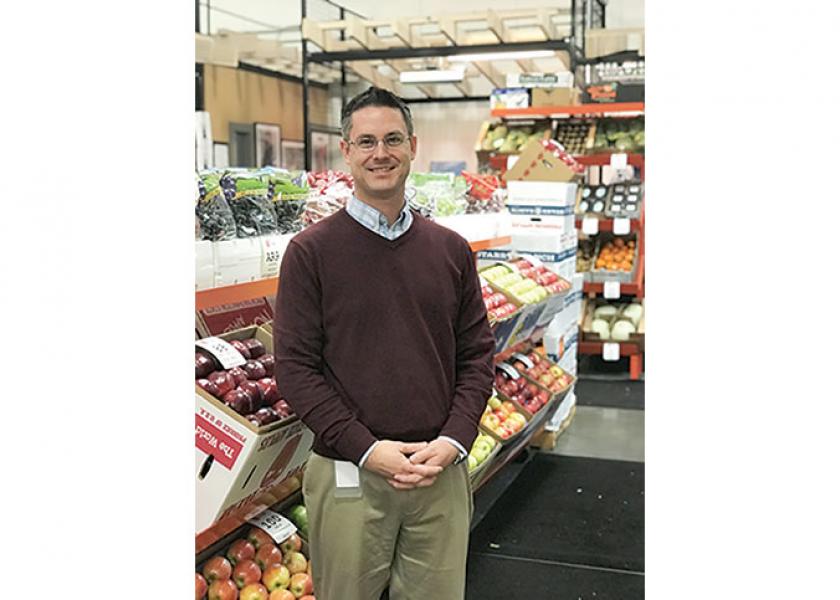Philadelphia wholesale market diverts 80% of its waste from landfill

The Philadelphia Wholesale Produce Market reduced its waste by 80% in less than six months after hiring professional help.
“We want to get to a point where we aren’t throwing anything away,” said Mark Smith, market manager.
“That last 20% is going to be a big hill to climb, but I think we can get there over time.”
The market partnered with Natural Upcycling, Linwood, N.Y., a food waste collection company that recycles organic or food waste and turns it into a renewable resource.
The company handles liquid, food, byproducts, out-of-spec products, packaging — such as aluminum, shrink wrap, cardboard and glass — and pallets as well.
“Our mission is to do something better with the materials we get, and hopefully save them some money,” said Harry Cohen, cofounder of Natural Upcycling, which follows the Environmental Protection Agency’s food-waste hierarchy.
“If food can’t be sold, can it be donated to feed people? Then animals? If not, anaerobic digesting or composting? Last is the landfill.”
Natural Upcycling took over management of an 11,000-square-foot waste and recycling center on the terminal’s property, which was handling more than 500 tons a month of waste, including food, carboard, plastic and crates.
Previously, the market employed 12 staff members to sort the waste and recycle cardboard and plastic. Now, there are three employees handling the same load, 75% of which is diverted from the landfill, Smith said.
Cohen said his focus was to redirect the waste toward animal feed and anaerobic digestion, which happens when rotting food creates methane gas. They can harvest electricity from that gas and use it to generate power at a farm.
“It’s also essentially an organic fertilizer, so we’re seeing improved crop yield. It’s bringing nutrients back into the earth,” Cohen said.
Natural Upcycling has the tools, technology and infrastructure to semi-automize, streamline and maintain “hyper focus” on the waste more efficiently and more sustainably, Cohen said.
Each month, the market generates 60 to 80 tons of cardboard that employees bail, stockpile and transport at 20-ton truckloads to the mill for recycling to become paper items, such as paper towels.
The company created a system to separate a couple of tons a month of plastic crates and pallets, which are sold to a polymer company, which grinds it back down to make new plastic items.
Each week, the market ships out four truckloads of wooden pallets to a pallet re-manufacturer, where the pallets will either be reconditioned or ground into sawdust to be used for animal bedding.
The nine employees no longer needed at the terminal’s waste facility were retrained for janitorial duties, which is needed to keep the place extra sanitized and clean since the new coronavirus pandemic started, Smith said.
“With the dollars saved from the waste management team, we were able to invest and focus on keeping the market in tip-top shape. It’s ensuring our building is kept up (to) the highest standard,” Smith said.
Customers were asking how the terminal was handling its waste.
“We knew we weren’t doing a good job of managing the waste stream, and it was something we were responsible for, and it was also costing us a lot of money to handle it. And we don’t know how to handle a waste facility,” Smith said.
“Not only is it the right thing to do, but it’s beneficial for us financially.”
Related Content:
COVID-19 pandemic fuels packaged onion demand
Suppliers work on packaging dilemma
Industries work to educate consumers on recycling old packages








